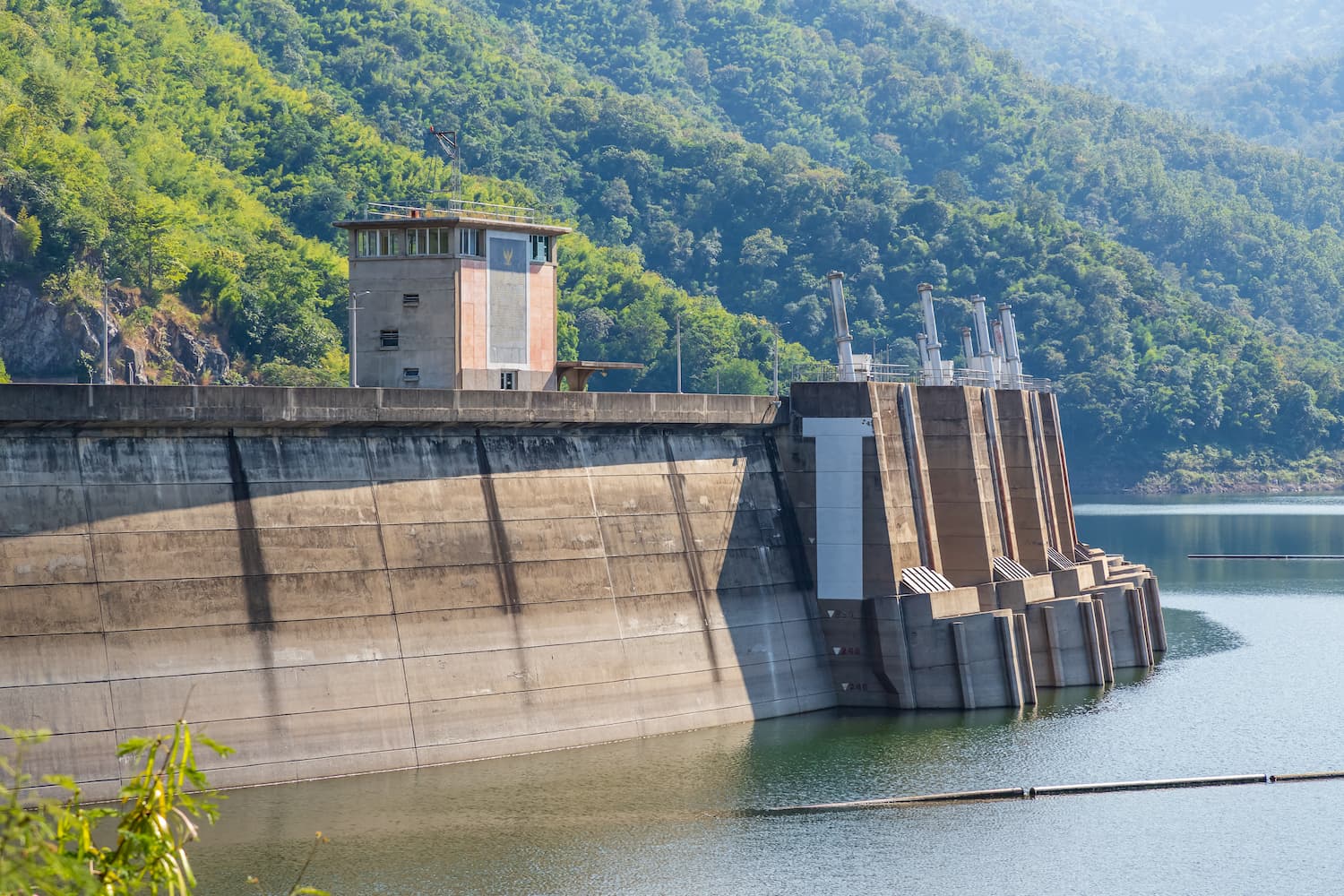
Thailand's Prime Minister Srettha attended "EARTH JUMP 2024: The EDGE of Action" forum. (Photo: Royal Thai Government)
Thailand, which heavily relies on natural gas for power generation, aims to attract foreign investment by boosting renewable energy. Recently, Prime Minister Srettha Thavisin announced at an event, "Thailand will achieve 50% renewable energy by 2040." However, Thailand's green energy share is only 16.61%. How will he achieve this goal? What challenges are there?
Hydropower potential attracts investors
In mid-May, Prime Minister Srettha participated in the "EARTH JUMP 2024: The EDGE of Action" forum hosted by Kasikorn Bank, where he emphasized that global climate change is a significant concern for the government. He noted that during his visits to over 15 countries, he often persuaded foreign investors to come to Thailand by highlighting three main advantages: Thailand's investment incentive policies, its neutral stance in international politics, and its domestic renewable energy potential.
Moreover, the development of renewable energy has become a crucial factor for foreign investors in choosing their investment locations. Srettha also revealed that due to Laos' high renewable energy capacity, thanks to its numerous hydropower plants, but with a relatively small industrial scale, Laos hopes to export renewable energy to Singapore via Thailand’s power grid. Singapore needs a significant amount of green energy to attract foreign investment. However, Prime Minister Srettha responded that Thailand would not accept Laos' request because Thailand also needs more green energy. Instead, Laos can sell its excess green energy to Thailand.
Srettha has set an ambitious green energy goal, aiming to increase the share of renewable energy in Thailand to 50% within the next 15 years by developing diverse sources of green energy. Currently, Thailand's renewable energy mainly includes solar power, biomass, and hydropower. Srettha is optimistic about Thailand's abundant dams, which could be fully utilized for hydropower development. Additionally, solar power installations could be added to hydropower plants. However, the hydropower resources are not yet fully utilized.

Hydroelectric power plant at Bhumibol Dam in Thailand. (Photo: Freepik)
Businesses urge urban planning relaxation
Although Thailand has clear renewable energy targets, there are still many challenges on the road to energy transition. The Thailand Development Research Institute (TDRI) has pointed out that the biggest challenge towards Thailand's goal of carbon neutrality by 2050 is the lack of an open market for green electricity trading domestically. Opening the market for green electricity trading would enhance market competitiveness, allowing the public and businesses to have diverse sources of green electricity and reasonable prices to choose from.
Additionally, power generation companies suggest that the government should promote the widespread adoption of solar power by relaxing regulations in urban planning zones. They also recommend providing subsidies to businesses for investing in energy storage systems. Given the current high cost of domestic energy storage systems, subsidies could accelerate the modernization of the domestic grid to promote stable power supply.
According to the latest data from the Electricity Generating Authority of Thailand (EGAT), Thailand's current energy structure shows that 63.69% of its electricity comes from natural gas, while renewable energy accounts for approximately 16.61%.
Source: Royal Thai Government, TDRI: Thailand Development Research Institute, SCG NEWS CHANNEL, EGAT




